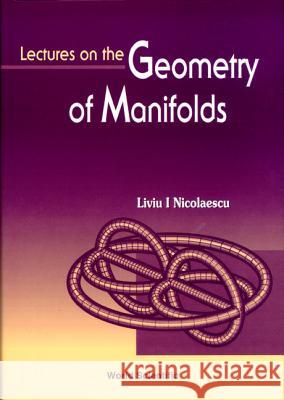Lectures on the Geometry of Manifolds » książka
Lectures on the Geometry of Manifolds
ISBN-13: 9789810228361 / Angielski / Twarda / 1996 / 500 str.
The object of this book is to introduce the reader to some of the most important techniques of modern global geometry. In writing it we had in mind the beginning graduate student willing to specialize in this very challenging field of mathematics. The necessary prerequisite is a good knowledge of the calculus with several variables, linear algebra and some elementary point-set topology.We tried to address several issues. 1. The Language; 2. The Problems; 3. The Methods; 4. The Answers.Historically, the problems came first, then came the methods and the language while the answers came last. The space constraints forced us to change this order and we had to painfully restrict our selection of topics to be covered. This process always involves a loss of intuition and we tried to balance this by offering as many examples and pictures as often as possible. We test most of our results and techniques on two basic classes examples: surfaces (which can be easily visualized) and Lie groups (which can be elegantly algebraized). When possible we present several facets of the same issue.We believe that a good familiarity with the formalism of differential geometry is absolutely necessary in understanding and solving concrete problems and this is why we presented it in some detail. Every new concept is supported by concrete examples interesting not only from an academic point of view.Our interest is mainly in global questions and in particular the interdependencegeometry ↔ topology, local ↔ global.We had to develop many algebraico-topological techniques in the special context of smooth manifolds. We spent a big portion of this book discussing the DeRham cohomology and its ramifications: Poincaré duality, intersection theory, degree theory, Thom isomorphism, characteristic classes, Gauss-Bonnet etc. We tried to calculate the cohomology groups of as many as possible concrete examples and we had to do this without relying on the powerful apparatus of homotopy theory (CW-complexes etc.). Some of the proofs are not the most direct ones but the means are sometimes more interesting than the ends. For example in computing the cohomology of complex grassmannians we returned to classical invariant theory and used some brilliant but unadvertised old ideas.In the last part of the book we discuss elliptic partial differential equations. This requires a familiarity with functional analysis. We painstakingly described the proofs of elliptic Lp and Hölder estimates (assuming some deep results of harmonic analysis) for arbitrary elliptic operators with smooth coefficients. It is not a “light meal” but the ideas are useful in a large number of instances. We present a few applications of these techniques (Hodge theory, uniformization theorem). We conclude with a close look to a very important class of elliptic operators namely the Dirac operators. We discuss their algebraic structure in some detail, Weizenböck formulæ and many concrete examples.











